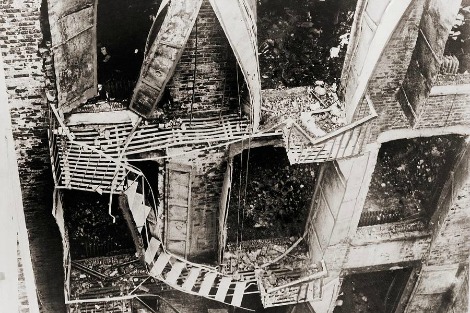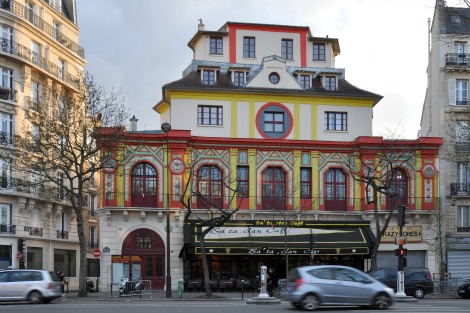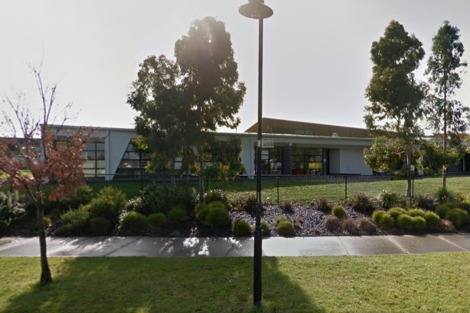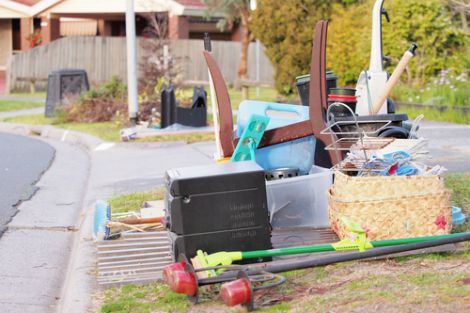Keywords: Way Of Death
There are more than 200 results, only the first 200 are displayed here.
-

ARTS AND CULTURE
- Tim Kroenert
- 14 January 2016
If you're going to apply a blowtorch to an institution as wealthy and litigious as the Church of Scientology, you might best be advised to first apply a magnifying glass. Alex Gibney details the dark side of the movement: its dubious tax-exempt status; allegations of psychological and physical abuse of current members and harassment of former members. But he is equally interested in unpacking the nature of belief in Scientology: what draws people to it, and also what drives them away.
READ MORE 
-

AUSTRALIA
- Justin Glyn
- 11 January 2016
4 Comments
Health care professionals at the Royal Melbourne Children's Hospital have begun to do what could not be achieved by reports from the UN Special Rapporteur on Torture and Australia's Human Rights Commission. The doctors and staff are refusing to release children they treat back to the detention which caused their problems in the first place. By this brave act has begun the slow task of pouring daylight (always the best antiseptic) into this gaping wound in Australian society.
READ MORE 
-

AUSTRALIA
- Frank Brennan
- 10 December 2015
I first met this Tony on my regular visits here to Darwin when he was working at the North Australian Aboriginal Legal Aid Service and then when he set up the mediation services under the auspices of Anglicare. In later years I knew him when he was your Anti-Discrimination Commissioner. He was a quiet, considered, gentle, strong and principled man. On Human Rights Day, it is only fitting that I honour Tony by offering some reflections on the architecture for human rights in Australia, on the contemporary human rights controversies, and on the way forward for better protection of the human rights of Aborigines and asylum seekers, two marginalised groups who had a special claim on Tony's sympathies.
READ MORE
-

RELIGION
- Frank Brennan
- 03 December 2015
The consideration of medico-legal problems in the public square of a pluralistic democratic society keeping pace with profound technological change is often marked by simplistic assertions, precluding considerations of comprehensive world views, whether religious or philosophical. It is now commonplace for doctors to be told to leave their consciences at the door, as their patients are consumers and they are suppliers and of course the market decides. Debates about law and policy are often resolved with simplistic assertions about individual rights and autonomy, with little consideration for the public interest, the common good, and the doctor-patient relationship. Even conscience is said to be a matter for contracting out. This evening I ask whether there are more compelling ways to resolve medico-legal dilemmas, while conceding a limited role for law in determining the range of acceptable answers.
READ MORE
-

INTERNATIONAL
- Beth Doherty
- 27 November 2015
4 Comments
This week marked three years since the Tazreen Fashions factory fire in Dhaka, Bangladesh, left over 100 garment workers dead. Six months later, Rana Plaza in Dhaka collapsed, and 1134 people were killed. Labels for top brands such as H&M and Benetton were found in the rubble. While steps have been taken by some companies to promote ethical supply chains, it may be that the only way for a more just treatment of garment workers is the proper organisation of the workers themselves.
READ MORE 
-

RELIGION
- Frank Brennan
- 27 November 2015
2 Comments
'The crisis of child sexual abuse in our societies has required that our institutional procedures be more transparent and that we learn from the ways of the world in exercising power openly and justly. This means we have to restructure some of our church arrangements so that power is exercised accountably and transparently. All of us who have positions of influence and power in institutional churches need to be attentive to the voices of those who have suffered within our institutions.' 'Discerning the place for the prophetic voice and pragmatic cooperation of the churches in the great moral questions of the age', address to the Association of Practical Theology in Oceania conference, 26 November 2015.
READ MORE
-

INTERNATIONAL
- Bronwyn Lay
- 16 November 2015
16 Comments
As I marched for Remembrance Day in our small village in France, I wondered, 'How long will these villages keep these ceremonies? When will someone decide these wars are too long ago or too far away?' Two days later, Paris was attacked. The news came like war does: sudden and violent. Then came declarations of a state of emergency and the closing of borders. My eldest daughter was over the border in Switzerland without a passport. War starts in increments, in the small ordinary worries of families.
READ MORE 
-

AUSTRALIA
- Justin Glyn
- 30 October 2015
11 Comments
Muharram is above all a month of mourning for Shi'a. One of the ways in which the month may be mourned is by avoiding joyful music. For the pupils of Cranbourne Carlisle Primary School, singing of the national anthem was therefore recognised as a potential problem, not because of any disrespect but for precisely the opposite reason. It was respected as a song of hope and gladness, a delight in a common national identity. It was on these very grounds that the children did not want to sing it.
READ MORE 
-

INTERNATIONAL
- Catherine Marshall
- 23 October 2015
15 Comments
Sissies are on their way out on British playgrounds. Guidelines produced by the Institute of Physics for the Department of Education recommend that teachers strongly discourage sexist language at school. While internet forums are replete with admonitions from members of the public furious at the erosion of so-called free speech, the guidelines are a welcome tool in the long and exhausting fight for female equality, and Australia would do well to consider adopting such procedures too.
READ MORE 
-

ARTS AND CULTURE
- Patti Miller
- 14 October 2015
13 Comments
I have always felt guilty about an inability to commit to any belief system. So when Montaigne said 'Only fools have made up their mind', I felt an enormous sense of relief. He knew that those who are certain are the ones to shut down newspapers, lop off heads, blow up planes, burn books. There is a thread throughout his essays, too, of him finding sex undignified and therefore unfitting for grown men and women. It is one of his many contradictions and confronts me with my own contradictory attitude.
READ MORE 
-

AUSTRALIA
- Justin Glyn
- 13 October 2015
9 Comments
Health care professionals at the Royal Melbourne Children's Hospital have begun to do what could not be achieved by reports from the UN Special Rapporteur on Torture and Australia's Human Rights Commission. The doctors and staff are refusing to release children they treat back to the detention which caused their problems in the first place. By this brave act has begun the slow task of pouring daylight (always the best antiseptic) into this gaping wound in Australian society.
READ MORE 
-

ARTS AND CULTURE
- Sally Cloke
- 23 September 2015
11 Comments
Our local council has announced the end of hard rubbish. As an adult, my enthusiasm for what the council calls 'scavenging' has become the source of many beautiful and useful items. But my objections are philosophical as well as practical. Ugliness has its place, and at clean out time, we literally bring to our doorsteps what we would rather put of sight and mind. Hard rubbish symbolises the costs of our throw-away consumer society while going a small way towards recouping some of them.
READ MORE 